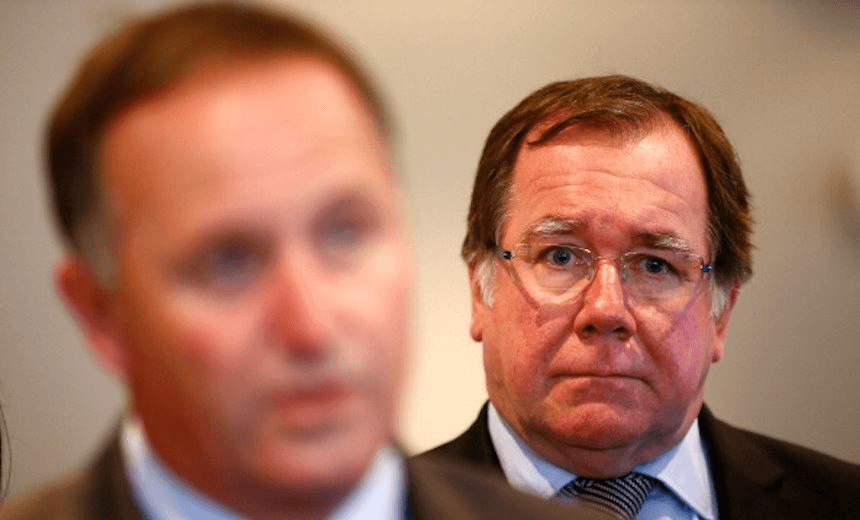The government is trumpeting the fact that the Auditor-General’s report into the Saudi sheep fiasco did not find its mastermind guilty of criminal corruption. Good for McCully, says Ben Thomas – now let’s look at what the report did say about New Zealand’s most bizarre ovine scheme.
“A government can do anything they want”, said top pundit Mike Hosking as his exclamation point to the Saudi sheep saga, which saw foreign minister Murray McCully accused of improperly using $11.5 million of taxpayer money to curry favour with a well-connected Saudi businessman by setting up an incongruous “agrihub” for the billionaire in a desert. With respect, this is an imperfect understanding of the rule of law, a sometimes fuzzy but fundamental constitutional principle that means, at the very least, the government can’t just do anything it wants.
Hence, the long awaited report by the Auditor-General into McCully’s Middle Eastern strategy of giving away farms on the public purse.
The report concluded that McCully was not guilty of criminal corruption, that is, abusing public power for personal enrichment or gain. This, predictably, has been the basis of his defence, and was the leading angle for early news coverage, although notably it was not an allegation anyone had actually made against McCully. (No-one thought anyone, except the billionaire recipient of a taxpayer funded farm, gained anything at all from the foreign minister’s machinations).
The focus on corruption seems very unfair to McCully. For one thing, it means media ignored all the other criminal offences that he had also not been accused of or found culpable for. More comprehensive reporting may have also noted the report found no evidence he was guilty of arson, livestock theft, poisoning or blasphemous libel. Happy days for the Beehive indeed!
Only one (1) MP in New Zealand history has ever been convicted of corruption in a public office, so this seems to be setting a new bar for Prime Ministerial tolerance, as John Key has signalled he retains full confidence in his non-corrupt, non-firestarting, non-blaspheming friend and colleague.
What else was in the report, relating to the actual charges against McCully that paying $11.5 million to a private billionaire on inexplicable grounds is the sort of thing that government may do, but shouldn’t? The Auditor-General looked at four main points:
Whether the arrangements were made within the law
Despite what eminent jurist Mike Hosking might say, a government must only spend money that Parliament has allowed it through a budgetary appropriation. If parliament has said (by voting on the annual Budget) you can spend money on a new hospital, you can’t spend it on a swimming pool for political staff. The Auditor-General found McCully’s spending under diplomatic and trade appropriations was legal. She also noted, however, “It is not within my legal mandate to comment on or criticise the Government’s trade, diplomatic, or animal welfare policy decisions.” That is, because Lyn Provost is not a diplomat, she has to take McCully’s word that setting up a farm for an aggrieved foreign billionaire in the Saudi Arabian desert and sending pregnant ewes by plane to give birth to lambs on sun-scorched earth is the normal sort of thing we do in the course of diplomacy with another nation state. She admits to being “surprised” by the decision, which in this context is like your mother saying she is “surprised” by your choice of outfits for a family dinner.
Whether the business case for spending public money was robust
“The contract’s benefits to New Zealand were unclear in the Cabinet paper, the business case, and its subsequent implementation,” the Auditor-General concluded.
Whether good process was followed
The key political allegation is that McCully misled Cabinet and the Prime Minister over the need for the spending. The Auditor-General said she “found significant shortcomings in the paper put to Cabinet in support of the decision to enter into the Saudi Arabia Food Security Partnership”. Significantly, the cabinet paper did not make clear to McCully’s cabinet colleagues that the “agrihub” would be owned by a private foreign businessman, rather than the government stumping up the cash, and claimed it was necessary to defuse a $20-30 million legal risk from the unhappy Saudi investor whose live sheep export plans had been thwarted by the government. The Auditor-General found no legal threat had been made and the hypothetical risk had not been assessed by MFAT or by Crown Law, who would defend any action.
Whether value for money was obtained
We still do not have a Free Trade Agreement with Saudi Arabia. Most of the lambs born in the desert farm died.

